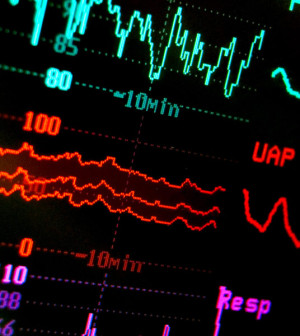- Are You Making This Expensive Thermostat Error This Winter?
- Recognizing the Signs of Hypothyroidism
- 10 Strategies to Overcome Insomnia
- Could Artificial Sweeteners Be Aging the Brain Faster?
- Techniques for Soothing Your Nervous System
- Does the Water in Your House Smell Funny? Here’s Why
- Can a Daily Dose of Apple Cider Vinegar Actually Aid Weight Loss?
- 6 Health Beverages That Can Actually Spike Your Blood Sugar
- Treatment Options for Social Anxiety Disorder
- Understanding the Connection Between Anxiety and Depression
Certain Type of Brain Malformation May Be Best Left Alone


People with abnormal connections between arteries and veins in the brain may be less likely to suffer a stroke or die if they don’t undergo any procedures to correct the problem, new research suggests.
The study included 204 patients in Scotland who had these types of abnormal connections — called “brain arteriovenous malformations” or bAVMs — that had not ruptured. Of those patients, 103 decided to undergo one of three types of treatment: open brain surgery, minimally invasive surgery using a catheter, or targeted radiation therapy.
The other patients chose “conservative management,” which means no treatment and the use of medications to control seizures.
Those who chose surgery or radiation tended to be younger, more likely to have suffered seizures and less likely to have large bAVMs, the study authors noted.
Over an average follow-up period of nearly seven years, rates of disability or death were lower in the non-treatment group than in the treatment group during the first four years, but were similar after that, according to the study. It was published in the April 23 issue of the Journal of the American Medical Association.
Over 12 years, 14 patients in the non-treatment group suffered a nonfatal stroke or died, compared with 38 patients in the treatment group, the investigators found.
The findings suggest that conservative management is the better approach for patients with unruptured bAVMs. But long-term follow-up is needed to determine whether this continues to be the case over many years, Rustam Al-Shahi Salman, of the University of Edinburgh in Scotland, and colleagues explained in a journal news release.
Although the study found an association between lower rates of nonfatal stroke or death in the study participants who avoided surgery or radiation treatment, it did not prove a cause-and-effect relationship.
More information
The U.S. National Library of Medicine has more about brain arteriovenous malformations.
Source: HealthDay
Copyright © 2026 HealthDay. All rights reserved.










